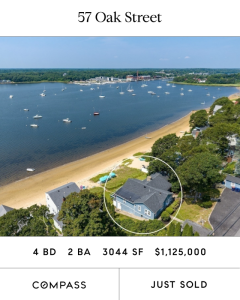Deer overpopulation advocacy group ‘Our Herd’ takes its concerns to state board
Dartmouth’s ongoing deer problem made an appearance before MassWildlife officials on Wednesday, Nov. 15, bringing state attention to a plight local advocates have been grappling with for over a year.
Advocacy group Our Herd is a group of residents, farmers, hunters and conservationists concerned about the overpopulation of white-tailed deer in Dartmouth and Westport. Founding member Amy Thurber attended the Fisheries and Wildlife Board’s Nov. 15 meeting in Westborough, where she presented the group’s detailed requests for regulation changes and assistance to alleviate the South Coast’s cervine issues.
“[Our Herd] has seen incredible growth very quickly and that is attributed to the fact that we have a very serious problem in our towns regarding the overpopulation of deer,” Thurber said to the board.
The deer population in Massachusetts, absent traditional predators such as mountain lions and wolves, has increased dramatically over the past several decades. At the same time, hunting pressure decreased due to expanded land use and a reduction in legal hunting access.
The Massachusetts Department of Fish and Wildlife says that a healthy forest can support anywhere from 6 to 18 deer per square mile. A recent study of Allens Pond Wildlife Sanctuary observed 56 deer per square mile, according to Gina Purtell, Program Manager for Coastal Resilience and Community Science at Mass Audubon.
An unhealthy population of deer not only hurts the natural flora in local forests, but impacts the crop yield on local farms.
A section of the state’s general law allows for landowners or their permanently employed hunters to kill deer destroying their property, but “the process is obscure and does not deliver results,” Thurber said.
She asked the Fisheries and Wildlife Board to reform the process to make it “clear, accessible, obtainable and tailored to farmers’ needs.” Thurber also asked for an “easily accessible year-round permitting process” that does not tie permits for deer destroying property to public hunting access.
Additionally, deer killed for destroying landowner property must be turned over to the environmental police. Thurber asked the board to “allow farmers and hunters to harvest the venison from deer who are browsing agricultural crops.”
At the same time, MassWildlife should “partner with the local landowning population,” Thurber said, to actually start making a dent in the deer population, which continues to grow.
“Our community has a problem and we have the tools to fix it, but we need MassWildlife’s help,” Thurber said. “If we have any hope of managing this population, our perception of hunting and the laws and regulations need to adapt as well.”
The Fisheries and Wildlife Board did not directly respond to the public comment, other than praising Thurber’s presentation as thorough.
Our Herd expects to hold more meetings in 2024, including a presentation on damage to habitats by deer and restoration efforts, another on agricultural challenges, fencing options, deer deterrents and deer resistant plants, and a third on hunter education programs and more venison tasting.


































